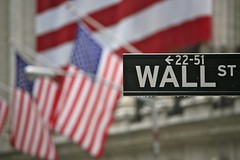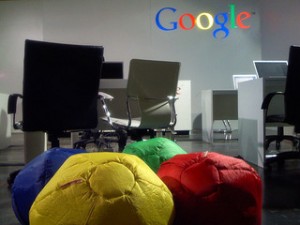 Since 2005, Exxon Mobil has held the top spot as the most valuable company in the United States. As the Associated Press reported, for the first time since 2005, Exxon Mobile was ousted from the top spot on August 9, 2011 when Apple surpassed Exxon Mobile as the most valuable U.S. company.
Since 2005, Exxon Mobil has held the top spot as the most valuable company in the United States. As the Associated Press reported, for the first time since 2005, Exxon Mobile was ousted from the top spot on August 9, 2011 when Apple surpassed Exxon Mobile as the most valuable U.S. company.
These two companies are close when it comes to being crowned the nation’s most valuable company, and considering that other companies have quite a gap to fill in order to catch up to Exxon Mobile and Apple, it can be assumed that the battle will continue between just these two powerful companies at least in the short term.
However, this activity brings some interesting considerations about the value of the Exxon Mobile and Apple brands as well as the products they offer.
Exxon Mobile is an oil company. Oil is a necessary evil to many consumers. Exxon Mobile makes a lot of money — earnings grew by 41% to $10.68 billion during the second quarter of 2011, and the company posted its biggest profit ever of $14.8 billion during the third quarter of 2008, when most consumers were struggling through a difficult recession. This is a company that provides a product people need. Many consumers don’t like that they need Exxon Mobile’s product, but their hands are tied. Furthermore, the brand’s perception is tarnished by the fact that consumers would prefer not to be dependent on Exxon Mobile’s product and the fact that the company is doing extremely well while individuals are struggling economically and the country is in massive debt. It’s hard to have a positive perception about a company like that.
On the other hand, as the Associated Press points out, Apple offers a product people want. The brand isn’t perfect and it has its detractors and gets a fair share of deserved negative publicity, but at the heart of the company is innovation. Apple develops products that people don’t need. However, they want Apple products and gladly pull out their hard-earned money to pay for them. As a result, the brand’s overall image is far more positive than negative as are consumer perceptions of the brand.
It’s interesting to see these two businesses with extremely different business models, products, and brand promises battle it out for the top spot as the most valuable company in the United States. It’s a battle many people will be watching. Will you? Which brand do you think will win? In the short-term? In the long-term? Leave a comment and share your thoughts.
Image: Alex E. Proimos
Susan Gunelius is the author of 10 marketing, social media, branding, copywriting, and technology books, and she is President & CEO of KeySplash Creative, Inc., a marketing communications company. She also owns Women on Business, an award-wining blog for business women. She is a featured columnist for Entrepreneur.com and Forbes.com, and her marketing-related articles have appeared on websites such as MSNBC.com, BusinessWeek.com, TodayShow.com, and more.
She has over 20 years of experience in the marketing field having spent the first decade of her career directing marketing programs for some of the largest companies in the world, including divisions of AT&T and HSBC. Today, her clients include large and small companies around the world and household brands like Citigroup, Cox Communications, Intuit, and more. Susan is frequently interviewed about marketing and branding by television, radio, print, and online media organizations, and she speaks about these topics at events around the world. You can connect with her on Twitter, Facebook, LinkedIn, or Google+.


